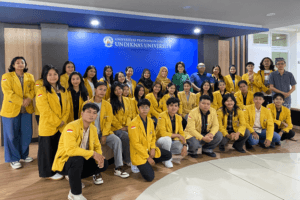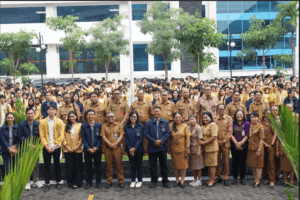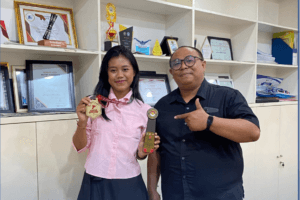
The Importance of Multicultural Education in Maintaining Harmony and Unity in Indonesia.
Denpasar – Education plays a crucial role in shaping a harmonious and peaceful society, especially in Indonesia, known for its diversity in ethnicity, religion, language, and culture. Maintaining harmony among these various groups is not an easy task, but with the right multicultural education, we can build a strong foundation to realize the vision of unity in diversity.
According to Dr. I Nyoman Subanda, M.Si, a lecturer at Universitas Pendidikan Nasional, “Multicultural education is not just a subject matter but a holistic approach that strengthens tolerance, appreciation, and intercultural understanding. This is essential to build a young generation that values diversity and can live peacefully amid a diverse society.”
In Indonesia, diversity is not an obstacle but a significant potential that can be developed through an inclusive education system. Through a curriculum that integrates multicultural values, schools can effectively shape students’ character to respect differences and promote equality. This also includes teaching local history to enrich students’ understanding of the nation’s cultural heritage and social diversity.
Multicultural education is not only about memorizing cultural or religious facts but also involves direct experiences in interacting with other cultures. Activities such as visits to places of worship, cultural festivals, and collaborative intercultural projects can provide valuable experiences that open students’ minds to a broader social reality.
Dr. I Nyoman Subanda added, “The importance of multicultural education is to create an inclusive learning environment where every individual feels valued and accepted regardless of their background. This will form a generation that is more tolerant, sensitive to social justice, and ready to face global challenges in the future.”
Moreover, the role of teachers is crucial in implementing this multicultural education. Teachers are not just instructors but also role models and facilitators in promoting mutual respect and understanding among students. By supporting this approach, schools can become safe and inspiring places for students to learn, grow, and develop in an environment full of diversity.
In the context of globalization today, multicultural education is no longer an option but a necessity. The future generation must be equipped with a profound understanding of the increasingly connected world while maintaining their cultural and national identity. Thus, Indonesia can continue to be a proud example of maintaining harmony and unity amid its rich diversity.
In conclusion, multicultural education is not an end goal but a continuous process in building a strong foundation for an inclusive and harmonious society. Through the joint efforts of educators, parents, and the community as a whole, we can achieve the vision of Indonesia as a progressive and just country where every citizen feels accepted and has an important role in building a better nation.
Therefore, let us collectively build a brighter future for the next generation through solid and inclusive multicultural education.



